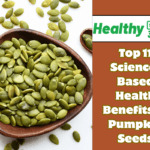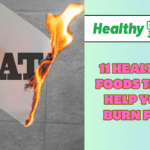6 NUTRIENTS YOU CAN’T GET FROM PLANTS
1. Vitamin B12 cannot be obtained from plants
Vitamin B12, also known as cobalamin, is indeed primarily found in animal-based foods, such as meat, poultry, fish, eggs, and dairy products. However, it is a misconception that vitamin B12 cannot be obtained from plants at all.
While plant-based sources of vitamin B12 are limited, some fortified foods and supplements can provide this essential nutrient to individuals following a vegan or vegetarian diet.
Certain fortified plant-based foods, such as breakfast cereals, plant-based milk alternatives, and nutritional yeast, are enriched with vitamin B12 to help meet the dietary needs of individuals who do not consume animal products. Additionally, some algae and seaweed products contain small amounts of vitamin B12, although they may not be a reliable source for meeting daily requirements.

2. Creatine is not present in plant foods
Creatine is a nitrogenous organic acid that is naturally produced in the body, primarily in the liver, kidneys, and pancreas, from amino acids like arginine, glycine, and methionine.
While it is true that creatine is not present in significant amounts in plant foods, as it is predominantly found in animal-derived sources such as meat and fish, it is not entirely absent from plant-based diets.
Although vegans and vegetarians may have lower levels of creatine intake compared to omnivores, certain plant foods contain small amounts of creatine precursors, such as arginine and glycine, which can be converted into creatine within the body. Foods like beans, nuts, seeds, and whole grains provide these amino acids, albeit in lower quantities than animal sources.
3. Omega-3 fatty acids are not present in vegan foods
While it’s true that omega-3 fatty acids are more readily available in animal-based sources such as fatty fish, eggs, and certain meats, it’s not entirely accurate to say that they are absent from vegan foods. Plant-based sources of omega-3 fatty acids include flaxseeds, chia seeds, hemp seeds, walnuts, and algae-based supplements.
These foods contain alpha-linolenic acid (ALA), a type of omega-3 fatty acid that the body can convert into the more bioavailable forms of omega-3s, such as eicosapentaenoic acid (EPA) and docosahexaenoic acid (DHA).
While the conversion rate of ALA to EPA and DHA is relatively low, incorporating a variety of these plant-based sources into a vegan diet can help ensure an adequate intake of omega-3 fatty acids.
Additionally, some fortified foods and supplements are available that contain EPA and DHA derived from algae, providing vegan-friendly alternatives to traditional fish oil supplements.
Read Also:
Focus While Studying: 10 Proven Methods
4. Plant foods do not contain Heme iron
It’s true that heme iron, which is found in animal-based foods like red meat, poultry, and fish, is not present in plant foods. Heme iron is a form of iron that is more easily absorbed by the body compared to non-heme iron, which is the primary form of iron found in plant-based sources such as legumes, leafy greens, nuts, and seeds.
While heme iron may be more readily absorbed, it’s important to note that consuming a varied and balanced plant-based diet can still provide adequate amounts of iron to meet daily requirements.
Plant foods contain non-heme iron along with other nutrients that can enhance iron absorption, such as vitamin C. For example, pairing iron-rich plant foods with vitamin C-rich foods like citrus fruits, bell peppers, or tomatoes can help increase the absorption of non-heme iron.
5. Vitamin D3 cannot be taken from plants
Vitamin D3, also known as cholecalciferol, is primarily found in animal-based sources such as fatty fish, liver, egg yolks, and fortified dairy products. While it’s true that vitamin D3 is not naturally present in plants, it can still be obtained from some plant-based sources through fortified foods and supplements.
Some plant-based milk alternatives, cereals, and orange juices are fortified with vitamin D3, making them suitable options for individuals following a vegan or vegetarian diet. Additionally, certain types of mushrooms, such as maitake and shiitake mushrooms, have the ability to produce vitamin D2 when exposed to ultraviolet (UV) light, although the amount produced may vary.
However, vitamin D2 is not as potent as vitamin D3 and may not be as effective at raising blood levels of vitamin D. For individuals who are unable to obtain adequate vitamin D from sunlight exposure and dietary sources, vitamin D3 supplements derived from lanolin (sheep’s wool) or fish oil are widely available and can help meet daily requirements.
Read Also:
Healthy Foods For Keeping Healthy Weight In Winters Cold
6. Carnosine is not available in plant foods
Carnosine is indeed predominantly found in animal-based foods, particularly in muscle tissues such as beef, pork, and poultry. However, while it may not be as abundant in plant foods, there are still ways for individuals following a plant-based diet to support carnosine levels in the body.
Carnosine is composed of two amino acids, beta-alanine and histidine, both of which can be obtained from plant-based sources. Foods rich in beta-alanine include whole grains, beans, lentils, and nuts, while histidine is found in abundance in plant-based protein sources such as soybeans, quinoa, and pumpkin seeds.
By incorporating a variety of these plant-based foods into their diet, individuals can ensure they’re getting the necessary amino acids to support carnosine synthesis in the body.





